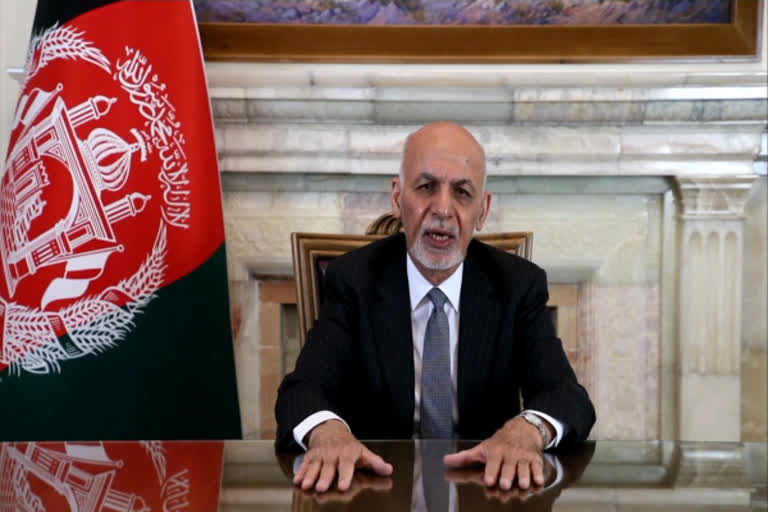United Nations: Afghan President Ashraf Ghani on Wednesday said in order to achieve sustainable peace in Afghanistan, there is a need to get to the root of the terrorism problem "blighting our region" and address it as the global threat that it is.
Addressing the General Debate at the 75th session of the UN General Assembly through a pre-recorded video statement, Ghani listed the sources of the turmoil that his war-torn country has been dealing with over the years.
"Violence and warfare have also evolved, an evolution we Afghans have witnessed and suffered in real time. We are living and dying inside the fifth wave of global terrorism, in which global terrorist networks are closely linked with global criminal networks, making warfare totally unconventional and peace-building even more of a challenge," he said.
Ghani added that as a state and society, Afghanistan has demonstrated the commitment, compassion and courage to take hard decisions to start direct peace talks with the Taliban.
"This will not be enough. For sustainable peace in Afghanistan, we must get to the root of the terrorism problem blighting our region and address it as the global phenomenon and threat that it is," he said.
Outlining Afghanistan's "clear plan" for the next five years, Ghani said it is based on building the country's markets for economic development, moving from an aid to a trade model, increasing its labour and capital productivity in key areas in which Kabul have a competitive advantage.
Also read:Taliban and Afghan officials hold peace talks in Doha
"The objective is self-reliance, moving away from donor relationships to mutually beneficial partnerships. At the same time, we will invest in strengthening state governance structures to create an environment conducive to growth," he said, adding that this would mean continuing to combat systemic corruption, improving public financial management systems and strengthening provincial and district-level governance.
He called on the 193-member General Assembly and the Permanent Members of the Security Council to help his country "achieve the end-state of a sovereign, united and democratic Afghanistan, at peace with itself and the region, capable of preserving and expanding the gains of the last 19 years".
He said a democratically stable and prosperous Afghanistan will be an example of how "our collective will can overcome the turmoil and uncertainty that define our world today".
Underlining Afghanistan's critical role as a connecting power in the region, Ghani said his country is positioned right at the heart of Asia.
